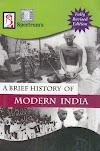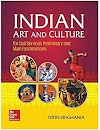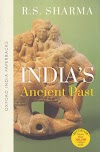Communal Award, Poona Pact and GoI Act 1935
"So long as there is Imperialism in the world, the permanent peace is impossible"
Communal Award & Poona Pact (1932)
In August 1932, British PM Ramsay McDonald announced Communal Award for depressed classes which meant that they would be regarded as minority and will be further entitled a separate electorate.
Gandhi ji's response
- He saw it as an attack on Indian unity and nationalism.
- He maintained once depressed classes to be treated as minority and separate political entity then the question of abolishing untouchability will be undermined.
- Untouchables will remain untouchable in perpetuity.
- He went on fast unto death on 20 September 1932.
- As a result, Poona Pact was signed between Gandhi ji and Dr. B.R. Ambedkar.
- The Poona Pact abandoned separate electorate for the depressed classes and seats were reserved for them in Central and Provincial legislative assemblies.
- In September 1932, All India Untouchability League was established by Gandhi ji for their emancipation.
Meanwhile, 3rd Round Table Conference was conducted and INC and Gandhi ji did not participate in it.
Government of India Act of 1935
Provisions of the Government of India Act 1935 are as follows -
- All India Federation was to be established comprising of British ruled territories and territories under Princely States.
- The Federation was conditional on the fulfillment of criterion that half of the state in respective categories must give their consent.
- Since, Princely States did not gave their consent, the provision was not enacted.
- The act provided for dyarchy at the centre whereby reserved subjects were under direct control of Viceroy's Executive Council and transferred subjects with Viceroy's Legislative Council.
- Dyarchy was removed from the provinces and provincial autonomy was sought to be provided.
- There was reconstitution of bicameral legislation in which Upper house with 260 seats (156 for British ruled province and 104 for Princely States).
- Three list of legislation was proposed.
- Federal list
- Provincial list
- Concurrent list
- The act enfranchised 14% of the Indian population.
- The act also led to the establishment of
- Federal Court of India
- Reserve Bank of India (RBI)
- Federal Public Service Commission
- State Public Service Commission
- It introduced the Principle of Constitutional Autocracy, whereby the act provided absolute power to the governor of the province and Governor general.
Provincial election and formation of Popular ministries
- It was agreed by everyone to oppose GoI Act of 1935 with root and branch.
- There was also full agreement that Congress should fight election to deepen anti-imperialist consciousness among the people. But it was not clear what to do after election.
- Sharp differences emerged on the question of office acceptance.
- Jawahar Lal Nehru, Subash Chandra Bose, Socialist leaders and Communist leaders of the INC opposed the office acceptance as they believed that it would negate the rejection of GoI Act 1935.
- C. Rajagopalachari, Satyamurty and M.A. Ansari were in favour of office acceptance.
- Gandhi ji's Stand - Gandhi ji opposed office acceptance in Congress working committee meeting but by the beginning of 1936, he became accommodative and was willing to give a trial to Congress ministries. He advised them to hold the offices lightly and not tightly.
In this regard, INC Session of 1936 was held at Lucknow which was presided by Jawahar Lal Nehru where INC endorsed the participation of Congress in election.
INC Session of Faizpur 1937-
- It was 50th annual session of INC.
- It was presided by Jawahar Lal Nehru.
- It was the first session which was held in a village to discuss peasants issue.
1937 Election
- Congress contested at 761 seats out of 1161 seats in 11 provinces.
- It got a clear majority in 6 states
- Bombay
- Madras
- United Province
- Central Province
- Bihar
- Odisha
- They formed coalition government in -
- Assam
- North-West Frontier Province (NWFP)
- Sindh
- In Bengal coalition government of Krishak Praja Party and Muslim League was formed.
- In Punjab, Unionist Party of Sikandar Hayat Khan formed the government.
Work of Congress ministries -
- Public safety bill was repealed.
- All the political prisoners were released.
- End of emergency ordinance.
- Freedom of press was restored and ban on many organisations was lifted.
- For example - Ban on Youth League and Hindustan Sewa Dal was lifted. But the ban on Communist Party of India (CPI) was remained intact as it was opposed by Central government.
- They control the communal riots.
- Many steps were taken to give reliefs to the farmers and labourers.
- For Example - UP Tenancy Act of 1939 was passed.
- Implementation of primary education model of Gandhi ji in provinces (whereby elementary education was provided in Vernacular language).
- Ban on alcohol and intoxicating drinks and Harijan (depressed classes) upliftment program was ensured.
Blemishes of the Congress ministries
- Congress Socialist leaders like Yusuf Mehrally and SS Batliwala were prosecuted for giving inflammatory speeches in Madras presidency.
- Moreover, in Bombay, Home Minister KM Munshi started to use CID to watch the activities of left wing Congress men and Communist leaders.
In September 1939, World War II broke out. The British government declared India to be party to the WWII without taking consent of Indian leaders.
The Indian leadership under Gandhi ji had full sympathy with the British but he was of opinion that "an enslaved nation like India cannot help against the forces of Hitler".
In protest Congress ministries resigned in October 1939.
Previous Article - Civil Disobedience Movement & Round Table Conference
Next Article - INA and Subash Chandra Bose
Notes on other subjects
Optional Subject
Note - This is my Vision IAS Notes (Vision IAS Class Notes) and Ashutosh Pandey Sir's Public Administration Class notes. I've also added some of the information on my own.
Hope! It will help you to achieve your dream of getting selected in Civil Services Examination 👍

.webp)



0 Comments